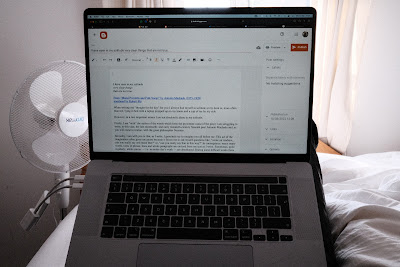"I have seen in my solitude very clear things that are not true" — on living the liberal religious life *TOGETHER*
A short “thought for the day” offered to the Cambridge Unitarian Church as part of the Sunday Service of Mindful Meditation
(Click on this link to hear a recorded version of the following piece)
—o0o—
However, in at least two senses, I am not entirely alone in my solitude.
Firstly, I am “with” the author of the words which form the proximate cause of the piece I am struggling to write, in this case, Antonio Machado and, as you will soon hear, always also with the words of Jesus and Socrates.
Secondly, I am with you, in that, as I write, I genuinely try to imagine you all before me. This act of the imagination often gives me pause because it forces me to ask myself questions like, “come on Andrew, can you really say and mean that?” or, “can you, or should you really say that in this way?” In consequence, many many words, lines, whole paragraphs and, sometimes, entire pieces are deleted in the process.
But, despite these two ways in which I try not to be alone as I write, I cannot deny that, like most writers, I nearly always write in solitude.
So, another strategy I employ as I write to counter my solitude is to check my facts. Sometimes I’ll check something before I cite it as being fact (ante hoc), whilst other times I only check something after I have written it down as fact (post hoc). Having done this for twenty-two years now, I am deeply ashamed at just how many times a post hoc fact check has blown this or that idea or claim of mine to smithereens and caused me to begin again. I shudder to think how many untruths, despite my best efforts, have still got through and into my own publicly spoken words.
Despair and disappointment about this aside, my hope is always, of course, that out of the wreckage, some extremely small fragment of truth remains that I can deliver to you on a Sunday morning with a genuinely clean heart and full belief (pathos).
And yet, and yet, for all that, Machado’s words continue to nag painfully at me because I am acutely aware just how many times in my solitude, despite all the checks and balances I try to put in place and keep in play, I have still seen very clear things that are not true and I have, therefore, offered up to you that same untrue thing with an entirely clean heart and full belief (pathos).
Forgive me. Mea culpa.
And this, in a nutshell, is why the examples of the human Jesus and Socrates remain so important to me personally and to the liberal religious and philosophical tradition to which a church like this belongs because, on the one hand, Jesus offers us a tried and tested practical way of being *together* in the world that collapses all our complex metaphysical beliefs and theories about God into the simple, if always challenging, call to love our neighbours as ourselves (and remember that includes our enemies) and which strongly suggests to us that whatever God is, or might be, God is only to be found in our relationships with each other in this world; and Socrates, on the other hand, offers us a practical way of testing the truth or otherwise of our ideas and opinions, not in solitude, but *together* through the conversational method of critical enquiry called “the elenchus”, better known today as “the Socratic Method.”
And this means that, in this church community, what you are being asked to trust in is neither me, per se as the minister, nor the things I have seen in my solitude that I believe are true, but, instead, you are being asked to trust the liberal religious process which promotes both a love of neighbour (including our enemies) and the Socratic form of critical enquiry that has formed, and is still forming, someone like me — and, I hope, someone like you.
I know that this community-centred philosophical and religious process I have seen and just outlined for you today IS true because it is only in your creative, critical and compassionate company that it is possible for me continually to pay attention to, become aware of, and be mindful about just how easy it is to see in my solitude very clear things that are not true.



Comments
To be honest, I do not even know why I have bothered writing this. But I did, and that's perhaps the point. Even shoveling muck all day is a fulfilling pastime for some.